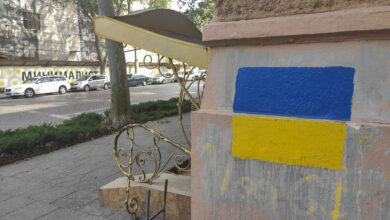Sri Lanka announces sale of part of national carrier due to crisis

Colombo, Aug 29 (EFE).- The government of Sri Lanka announced Monday that it will privatize two subsidiaries of the country’s national airline, SriLankan Airlines, as part of the measures to stabilize the country’s battered economy.
“The loss is borne by the government. The loss made by the Sri Lankan Airlines during this time (since 2010) is Rs 401 billion (around $5.02 billion),” Ports, Shipping and Aviation Minister Nimal Siripala de Silva said at a press conference in Colombo.
“Our challenge is how to maintain the airlines. It is hard to maintain the airlines with this kind of large loss. Therefore, the government has decided that this restructure is vital,” he added.
The island nation’s authorities has decided to sell sell a 49 percent stake in the state-run airlines’ catering and ground handling units.
De Silva underlined that the government lacks sufficient liquidity to continue maintaining the national carrier, and hoped to use the money from the sale to pay off the company’s debts.
However, political analyst Aruna Kulatunga said this decision could damage ongoing negotiations to relaunch other loss-making state corporations such as the Ceylon Electricity Board (CEB) through public-private partnerships.
“The government, with the advice of the International Monetary Fund (IMF) and other legal and commercial advisers (…) should look at this issue holistically, taking into account the debt pipelines that connect all these SOEs (state-owned enterprises),” Kulatunga told EFE.
Last week, Sri Lanka resumed negotiations with the IMF to conclude an urgent bailout program offering respite from the ongoing economic crisis.
The island nation, whose foreign reserves have dropped to an all-time low of around $1.8 billion, hopes to secure some $4 billion from the IMF that will allow it to restore fiscal balance.
Sri Lanka has been facing the worst economic crisis in its history, partly owing to a foreign currency shortage and the resultant severe shortfall of fuel and basic necessities.
The crisis sparked protests across the country, forcing then-President Gotabaya Rajapaksa – accused of corruption and mismanagement – to flee the country, and the appointment of Ranil Wickremesinghe as the new president. EFE
aw-daa/sc





